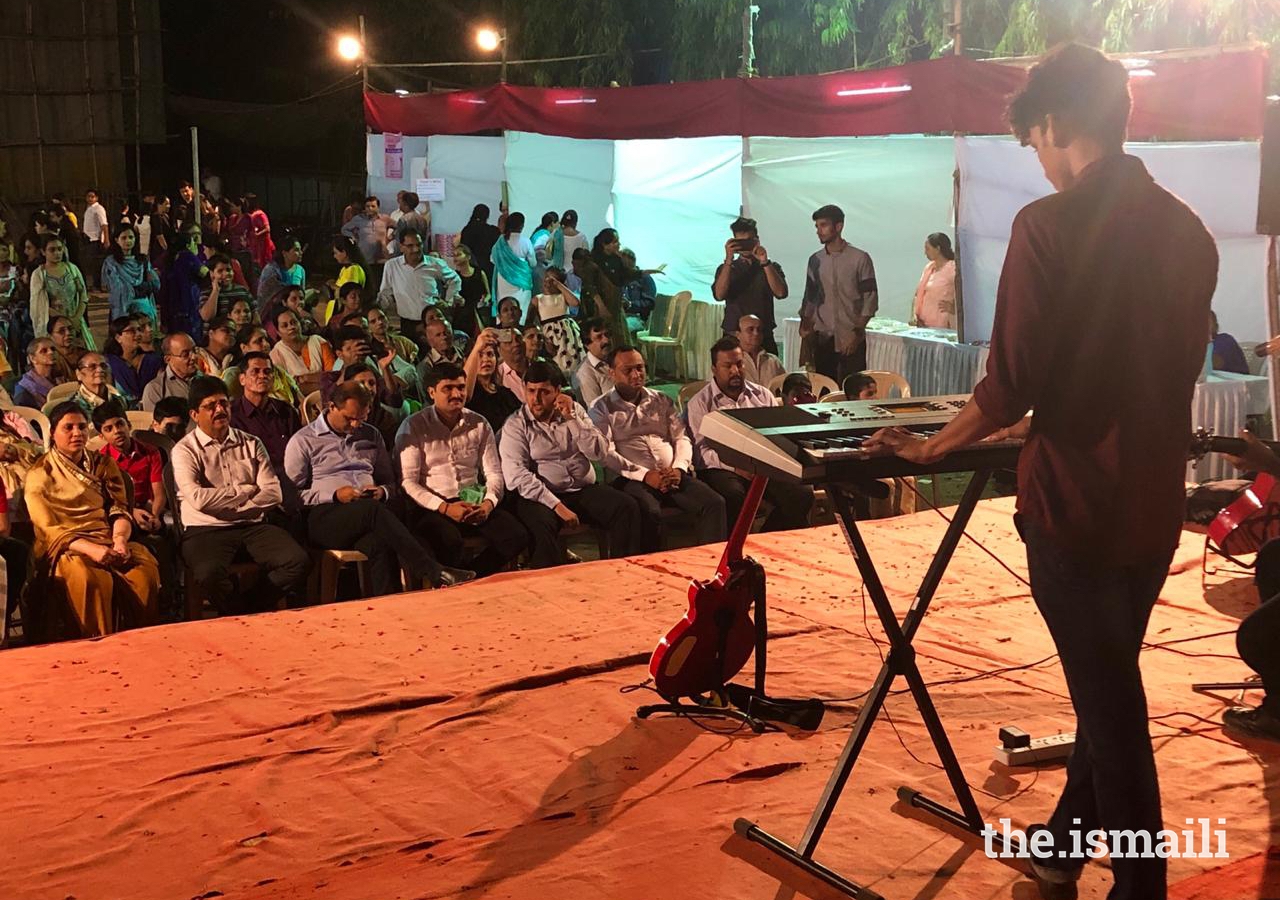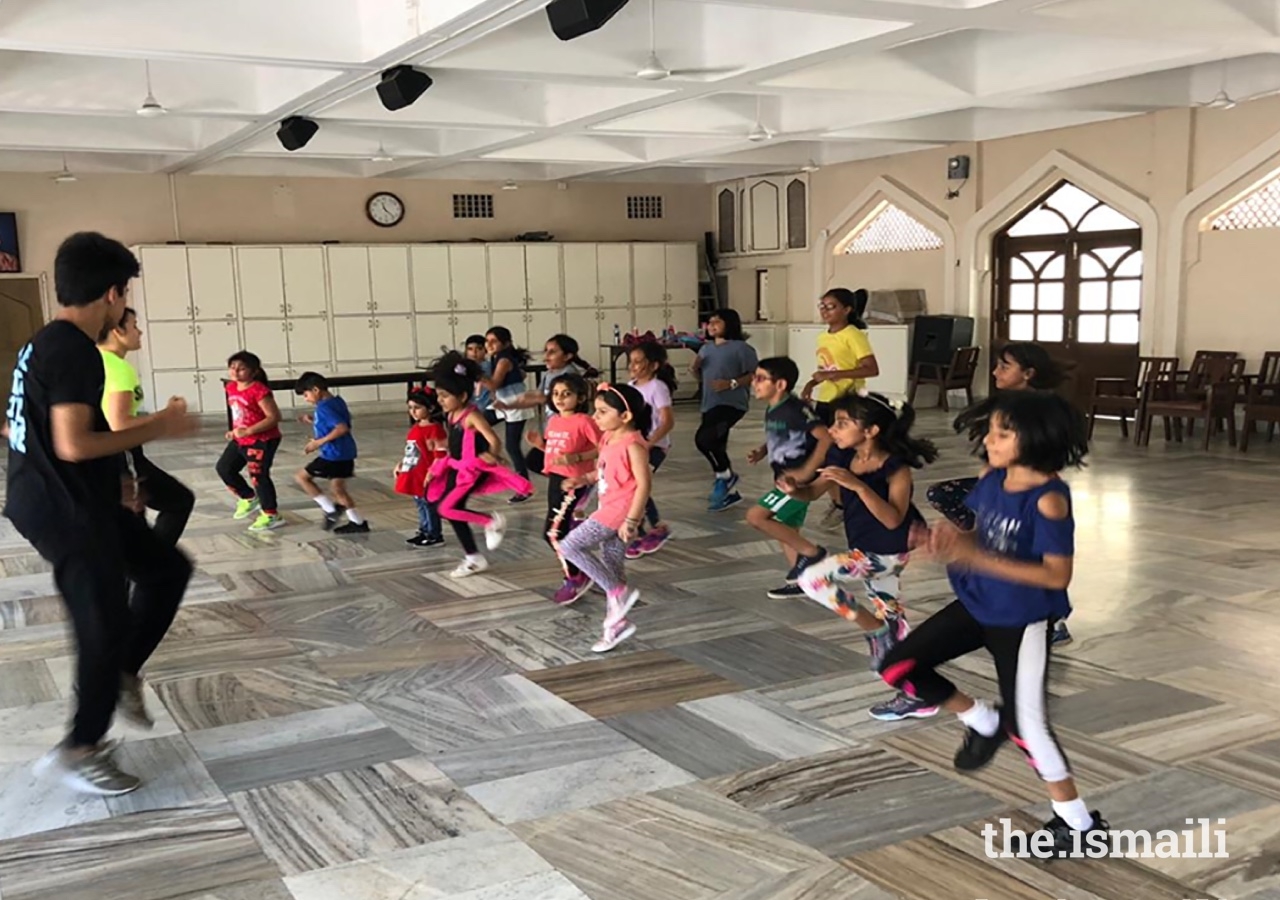“The art you create is first formed in your mind,” said Rahim Panjwani, a student of engineering from Surendranagar in Saurashtra. Rahim is a former participant of Shutterbug, one of the programmes in AKYSB’s Arts and Culture portfolio. The programme is one amongst AKYSB’s many initiatives to make art education accessible, affordable, and aspirational for the India Jamat, especially in smaller towns like Surendranagar where opportunities to pursue the arts can be limited.
Unveiled in 2016 at the Youth Awards for Excellence by Indian music stalwarts Salim and Sulaiman Merchant, the Arts and Culture portfolio was designed to introduce art education to youth between the ages of 6 and 25 years. In its first year alone, the portfolio has involved over 200 young Ismailis through three flagship programmes: Shutterbug, Music Matters, and Dance Studio; while initiatives for other art forms such as filmmaking and the fine arts are in the process of being developed.
“I believe that each one of us has art in us, waiting to be explored,” said Nazim Lokhandwala, a Mumbai-based photographer, and one of the many artists helping curate programmatic content for AKYSB. A runner-up at the National Jubilee Arts event for graphic design and with over 30 years of experience in event and architectural photography, Nazim has been associated with AKYSB since 2018. Along with Sohil Lalani, a fashion photographer, Nazim has been the architect of AKYSB’s photography programme for youth. Affectionately called ‘Shutterbug’, the initiative helps youth discover the world around them from behind the camera lens.
In line with Mawlana Hazar Imam’s guidance, the inaugural Jubilee Arts International Arts Festival in July 2018 has played a catalytic role in cultivating, developing, and promoting artistic endeavour in the global Jamat. In India in particular, it has helped change the perception of the arts amongst parents by demonstrating that youth can build a promising, professional, and rewarding career in the arts. The aspirational value of the international recognition from Jubilee Arts gave the Arts and Culture Portfolio in India the momentum it needed.
“The Jamat has received a taste for art, now we need to give them the recipe,” quips Al Qawi Nanavati, another Jubilee Arts-winning artist that is collaborating with AKYSB to develop an upcoming fine arts initiative. Al Qawi graduated from the Art Institute of Chicago and practices art that deconstructs the essence of spiritual contemplation, prayer, and other practices through a range of mediums including printmaking. Having previously taught children at the Metropolitan Schoolhouse in Chicago, she reflects on the importance of art for their holistic development.
“Art education opens up your mind to new ways of thinking and perceiving. It encourages creativity and abstract thinking; an absolute necessity in the Indian education system, where a straight line is a straight line, an apple is an apple, and the sky is always blue. Children need to learn that the sky could also be pink!”
Studies have shown that art education promotes the growth of multiple intelligences in children: spatial, linguistic, and logical. It helps improve cognitive function, boosts memory, and helps moderate emotional states. It also encourages critical thinking and helps children articulate their thoughts.
“I noticed a tremendous change in my daughter after a month of enrolling her for The Dance Studio with Shiamak Dawar,” said Parveen Khimani, the mother of nine-year-old Heena from Hyderabad. “Through dance, she became more focused, learnt how to work in a team, learnt coordination, and developed a newfound spirit of competitiveness that I am sure will stick with her throughout her life.”
Art not only helps children succeed in life, it also helps them cope with challenges and stress that come with cut-throat competition and the pervasive nature of social media.
“I like playing an instrument after my tuition classes in the evening or after I complete my homework. It relaxes me and helps soothe my mind,” said eight-year-old Azhaan Noorani, a participant of AKYSB’s Music Matters programme held in Mumbai.
In the Indian context in particular, these programmes are vital. Intimidated by the struggle that comes with choosing unconventional careers and their seemingly low incomes, most parents find it difficult to encourage the idea of a professional career in the arts. Fortunately, that is a trend that is now changing.
“While I was growing up, photography was expensive and the lack of financial resources was a major hurdle for me to fulfil my dreams,” said Nazim. “But today, the equipment is easily available, the opportunities are multifold and the chances for success and for earning a living are much higher than before. All they need is guidance.”
Events such as photo walks, music “jams,” and opportunities to perform at Shiamak Dawar’s annual Summer Funk, ensure that the intervention is not just limited to classes. Participants are given chances to showcase their talent to a wider audience and gain industry exposure.
“After attending Shutterbug, I feel confident enough to pursue photography as a viable alternate career. I have always been interested in photography but I was unable to find short courses that provided theoretical knowledge along with practical exposure in Saurashtra,” said Rahim.
Across the Arts and Culture portfolio, AKYSB,I’s goals are simple: to provide high quality programmes in partnership with industry leaders. Therefore, for ‘Music Matters’, AKYSB partnered with the Furtados School of Music, an organisation that runs more than 200 in-school programmes reaching over 100,000 students with a Trinity College-aligned curriculum. Similarly, their dance studio is taught by teachers from the Shiamak Davar Dance Academy, the premier institution for learning dance, with over 60 centres in India and 100 schools globally.
“It has become increasingly important to introduce art in the lives of children. They must be encouraged to try everything; to get their hands dirty,” said Nazim. The classes are conducted within Jamatkhana premises, demonstration classes are made available, and children are encouraged to get a feel for the artform before enrolling for classes.
In the future, AKYSB hopes to combine all of the Portfolio’s endeavours at the local, regional, and national art festivals. As Sulaiman Lakdawala, member of the AKYSB explains, “The vision of the Arts and Culture Portfolio is to not only make art a part of everyday life for the Jamat, but to also enable them to pursue excellence irrespective of their means or where they are from.”









